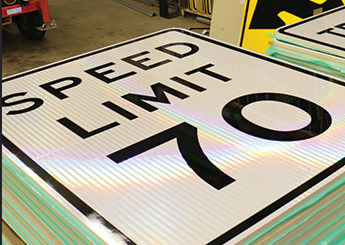Higher speed limits, more deaths? Study explores link

Photo: Oregon Department of Transportation
Washington – Approximately 33,000 motorists have lost their lives in the past two decades because of speed limit increases, according to a recent study from the Insurance Institute for Highway Safety.
In the study, which spanned data in 41 states from 1993 to 2013, researchers found that a 5 mph increase in maximum state speed limits accompanied an 8 percent increase in fatality rates on interstates and freeways. The same speed limit increase accompanied a 4 percent increase on all other roads.
As of press time, six states have 80 mph maximum speed limits. Some roads in Texas allow drivers to travel 85 mph. Other states have increased maximum speed limits from 65 mph to 70 mph.
“Since 2013, speeds have only become more extreme, and the trend shows no sign of abating,” Charles Farmer, the lead author of the study, said in a press release. “We hope state lawmakers will keep in mind the deadly consequences of higher speeds when they consider raising limits.”
The National Safety Council echoed Farmer’s sentiments.
“Speed contributes to nearly 10,000 deaths each year,” NSC Vice President of Communications and Advocacy Kelly Nantel said in a press release. “Yet we repealed a national speed limit in 1995, creating the opportunity for a patchwork system that has left motorists more vulnerable to high-speed crashes. … Getting somewhere 5 minutes faster is not worth a life.”
Post a comment to this article
Safety+Health welcomes comments that promote respectful dialogue. Please stay on topic. Comments that contain personal attacks, profanity or abusive language – or those aggressively promoting products or services – will be removed. We reserve the right to determine which comments violate our comment policy. (Anonymous comments are welcome; merely skip the “name” field in the comment box. An email address is required but will not be included with your comment.)

